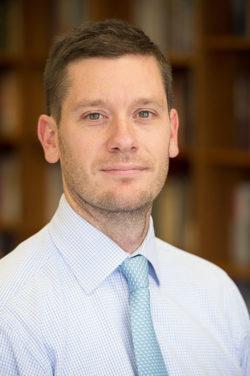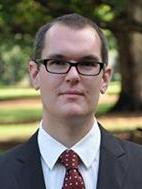|
John Casterline
Robert T. Lazarus Professor in Population Studies
John Casterline, director of the Institute for Population Research,
received a three-year grant from the Bill and Melinda Gates Foundation for "Demand for Modern Contraception in sub-Saharan Africa: New Methods, New Evidence." The $1.6 million grant, with co-PI Samuel Clark, will support a program of research on the demand for contraception in sub-Saharan Africa, with attention to the persistent high demand for children in sub-Saharan Africa and improved measurement of unintended pregnancy.
|
|
R. William Liddle
Professor Emeritus of Political Science
Bill Liddle recently spoke about "Indonesia's Presidential and Legislative Elections: What Do the Latest Polls Show?" to a capacity audience at the United States-Indonesia Society in Washington, D.C. Liddle briefed the audience on the latest poll results and trends leading up to the Indonesian election on April 17.
|
|
Paul Beck
Academy Professor of Political Science
"Lawmakers consider bypassing Electoral College in presidential elections"
|
|
Joan Cashin
"War Stuff: The Struggle for Human and Environmental Resources in the American Civil War"
|
|
Mitchell Lerner
Associate Professor of History
"The Hanoi Summit - We Asked Mitchell Lerner What Happens Next in U.S.-North Korea Relations"
|
|
R. Joseph Parrott
Assistant Professor of History
"New Zealand reminds us that far-right attacks are on the rise far and wide - including in the U.S."
|
|
Peter Shane
Jacob E. Davis and Jacob E. Davis II Chair in Law
"Trump vows 'Veto!' after Bipartisan U.S. Senate Rebuke on Wall"
|
|
Alexander Thompson
Associate Professor of Political Science
"State of the state department, diplomacy"
|
|
Thomas Wood
Assistant Professor of Political Science
"Sherrod Brown Is Out Of Presidential Race"
|
Mershon Memo is a weekly e-mail newsletter distributed by the Mershon Center for International Security Studies, part of the
College of Arts and Sciences at The Ohio State University.
|
|
 |
|
Monday, April 1, 2019
Gregg Brazinsky
"Empathy at War: Emotions in Sino-North Korean Relations during the Korean War"
3:30 p.m., 120 Mershon Center, 1501 Neil Ave.
Co-sponsored by the Institute for Korean Studies
 Gregg Brazinsky
Gregg Brazinsky works on U.S-East Asian relations and East Asian international history. He is interested in the flow of commerce, ideas, and culture among Asian countries and across the Pacific. He is the author of two books:
Winning the Third World (2017), which focuses on Sino-American rivalry in the third world, and
Nation Building in South Korea (2007), which explores U.S.-South Korean relations during the Cold War. In this event, Brazinsky will discuss how the Chinese and North Korean governments mobilized their citizens and soldiers during the Korean War. Read more and register at
go.osu.edu/brazinskyg
|
Friday-Saturday, March April 5-6, 2019
13th International Conference on Conflict Resolution Education
"Preparing Tomorrow's Peacebuilders: Career Paths in Peace Studies and Conflict Resolution"
120 Mershon Center, 1501 Neil Ave.
 The 13th International Conference on Conflict Resolution Education (CRE) is an opportunity for individuals to explore the wide array of local and global career opportunities in the field of conflict and peace. The conference will include:
- Skills development workshops
- Career and internship fair
- Opportunities to develop and practice elevator speech for a job
- Resume review by academics and professionals in the field
- Sessions for faculty, staff and administrators on how to enhance programs to better connect and prepare students for the wide variety of careers in the field
- Sessions for employers to help enhance their internship opportunities to better support their organization's needs and student learning
- Quality design of service learning specifically for peace and conflict resolution programs
- And more!
The conference is intended for secondary and higher education students, faculty, staff and administrators, members of the business community, non-profit leaders, media groups, philanthropists, and anyone wishing to make positive change in their communities. Read more and register at
u.osu.edu/CRE2019
|
Friday-Saturday, March April 12-13, 2019
Military Frontiers: A Graduate Student Symposium
Organized by Max von Bargen and Seth Myers
120 Mershon Center, 1501 Neil Ave.
 This year's Military Frontiers conference showcases the scholarship of 12 graduate students, all of whom study topics relating to the management of force and power in international affairs. The conference is interdisciplinary; the presenters represent a range of academic fields, and their research is based in a variety of methodologies. While all the papers to be presented share certain common themes, the subjects of the presentations are quite diverse. These include the public impact of memoirs published by intelligence officers, data governance in the European Union, and fear and rumors in the United States during World War I. Keynote address by
Hal Brands (left), Henry A. Kissinger Distinguished Professor of Global Affairs, Johns Hopkins University School of Advanced International Studies. Read more and register at
go.osu.edu/militaryfrontiers2019
|
 |
The power of one country to influence treaty ratification
|
New research shows just how powerful the United States' and other countries' influence can be on persuading other nations to ratify international treaties.
The first-of-its-kind study shows the influence of countries in treaty ratification can extend beyond their close allies and could even help persuade rivals to join agreements.
 "The simple act of a single country ratifying a treaty can have dramatic ramifications for what other countries do in ways that haven't always been apparent," said Mershon affiliate
Skyler Cranmer, co-author of the study and Carter Phillips and Sue Henry associate professor of political science at The Ohio State University.
In an article published in PLOS ONE, the researchers introduced a model that could predict how other countries would react when an individual country ratified one of 198 international environmental agreements between 1972 and 2000.
For example, the study found that the United States' signing of the United Nations Framework Convention on Climate Change (UNFCCC) in 1992 may have influenced Russia to ratify the treaty. Without action by the United States, Russia would have had only a 40 percent probability of signing the treaty, according to the model.
"Superpowers can influence each other even if they're rivals and their interests aren't always aligned," Cranmer said.
Russia wasn't the only unexpected country that signed the UNFCCC as a result of American ratification. U.S. support of the UNFCCC also influenced Nigeria, Thailand and Uruguay to sign, all of which have lacked significant, direct relationships with the United States.
Cranmer worked to develop the model with colleagues Benjamin Campbell, a Ph.D. candidate in political science at Ohio State; Frank Marrs, a Ph.D. candidate in statistics, and Bailey Fosdick, an assistant professor of statistics, both at Colorado State University; and Tobias Böhmelt, a professor of government at the University of Essex.
Read more
|
 |
 |
Thursday, March 28, 2019
Adam Segal
"U.S.-China Tech War: A New Age for Trade, Cyber Security, & Diplomacy"
11:30 a.m., Boat House at Confluence Park, 679 W. Spring St.
Sponsored by Columbus Council on World Affairs
 While a tightly linked technology system benefited the United States and China over the last two decades, there is now widespread concern on both sides of the Pacific that the security risks outweigh the gains. President Xi Jinping has accelerated policies designed to increase the innovativeness of the Chinese economy and reshape the global internet. The Trump administration has pushed back against Chinese technologies policies and threatened punitive measures if China does not cease the theft of intellectual property from American companies.
Adam Segal, Ira A. Lipman chair in emerging technologies and national security and director of the Digital and Cyberspace Policy Program at the Council on Foreign Relations, will put these events into context.
Read more and register
|
Friday, March 29, 2019
Lonnie Thompson
"Rapid Climate Change: Evidence from African Ice Fields and Beyond"
3:30 p.m., 1080 Derby Hall, 154 N. Oval Mall
Sponsored by Department of Geography
 Tropical glaciers are highly sensitive indicators and recorders of climate change. Unfortunately, most are currently retreating, primarily due to the recent anthropogenic warming. The loss of ice cover has been well documented on Mt. Kilimanjaro and Mt. Kenya. On regional to global scales the greatest near-term impacts of Earth's melting low latitude glaciers will be economic, especially in countries that rely on glacial streams for agriculture, hydroelectricity, municipal water supplies, ecosystem support, tourism, and recreation. The loss of these mountain glaciers is also likely to be a "threat multiplier" for growing geopolitical tensions in some regions.
Lonnie Thompson is Distinguished University Professor in the School of Earth Sciences senior research scientist in the Byrd Polar and Climate Research Center.
Read more
|
 |
 |
'Origins' looks at history of Catholic sex abuse scandals
Not too long ago commentators regularly talked about the end of the nation-state. Internationalism-whether through global trade agreements or the expansion of organizations like the European Union and NATO-seemed triumphant. Today, not so much. Countries from the Philippines to Hungary, from Turkey to the U.S. have been swept up in a reactionary nationalism.
The United States has embodied this tension. Having been at the forefront of creating institutions of global governance, Americans have aggressively rejected them at the same time. This month historian Amanda Lawson looks at this century-long friction between the need for global governance to protect human rights and the demands of national self-interest.
About Origins:
Origins: Current Events in Historical Perspective is a monthly ad-free magazine that features top scholars on today's most pressing topics. Published by The Ohio State History Department, its authors include National Book Award winners and world-renowned scholars. You can also explore
reviews of popular history books on the
Origins website as well as the new monthly feature
Milestones.
|
Fulbright Week at Ohio State is March 25-29
The Office of International Affairs, the Graduate School and the Undergraduate Fellowship Office invite all students, faculty and staff to participate in Fulbright Week 2019, a week dedicated to informing the Ohio State community about the opportunities available through the Fulbright and Fulbright-Hays program. Events take place
March 25-29, 2019.
For more information about Fulbright Week, contact Fulbright campus representative Joanna Kukielka-Blaser at
[email protected].
|
|
|